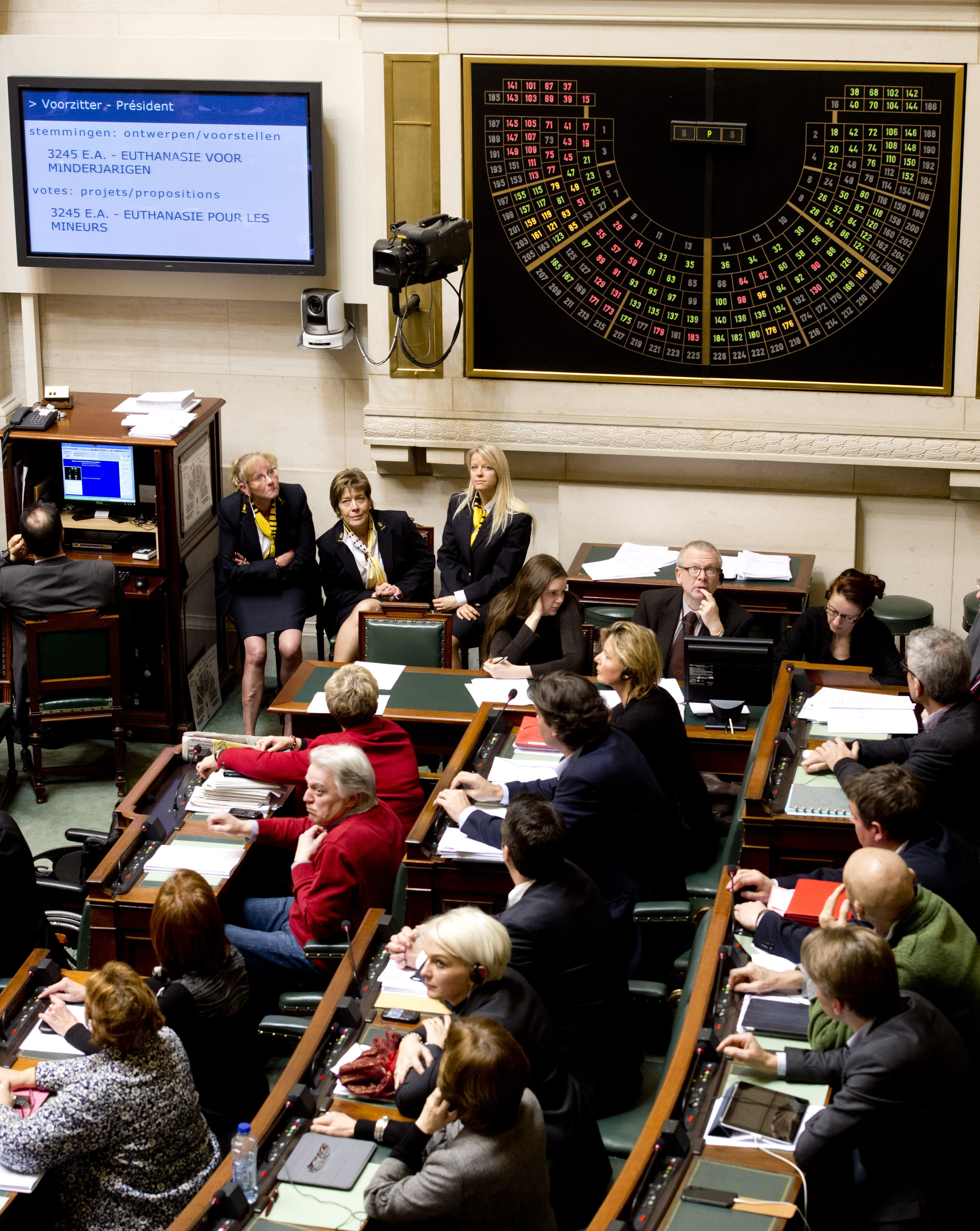Belgian euthanasia law 20 years old today, questions about its expansion persist

On 16 May 2002, the Belgian House of Representatives approved the euthanasia law, making Belgium the second country in the world after the Netherlands to legalise euthanasia under certain conditions. In 2014, euthanasia was extended to "judicious" minors.
The bill was introduced during the purple-green government by VLD (now Open Vld, Flemish liberals) MR (French-speaking liberals), SP (now Vooruit, Flemish socialists) Ecolo (French-speaking green party) and Agalev (now Groen, Flemish green party) senators. The law was ratified by the King on May 28. It formed a unity with two other laws that were approved in the following weeks: one on palliative care and a second on patients' rights.
The law stipulates that a patient may request euthanasia in the case of persistent unbearable and hopeless physical or psychological suffering due to a serious and incurable condition caused by accident or illness. The request for euthanasia must be voluntary, considered and repeated. A doctor is not obliged to accede to the request, but has to inform the patient about this decision.
The euthanasia files have to be sent to the Federal Euthanasia Control and Evaluation Commission (FCEE), which has to judge whether the procedure has been followed. If this is not the case, the file is sent to the public prosecutor. Every two years, the Euthanasia Commission is also required to draw up an evaluation report.
The law of 28 February 2014 extended the current euthanasia law to minors. Conditions are that the minor is "competent to judge" and that the parents or legal representatives agree to the request. Unlike in the case of adults, the request of minors cannot be made in the case of psychological suffering. The proposal was submitted by Open Vld and PS senators.
Their original proposal was much broader, but during the debate in the Senate, it soon became clear that the social, ideological and legal objections were too great to find a solution for two themes that have been around for years: euthanasia for 'incapacitated persons' - people in a coma and those suffering from dementia - and the issues of the very elderly who consider their lives to be 'finished' and assisted suicide.
The social debate on these issues continues, but for the time being there does not seem to be a majority for opening a parliamentary debate on them and actually making decisions. In 2019 and 2020, the validity of a living will stating that the patient wants euthanasia after an irreversible coma was first extended to ten years and then extended indefinitely.
In 2020, the euthanasia law was tested by a judge for the first time in the assize court case in Ghent concerning the euthanasia of Tine Nys, who asked for euthanasia at the age of 38 in 2010 due to psychological suffering. In 2020, the euthanasia law was tested by a judge for the first time in the assize court case in Ghent concerning the euthanasia of Tine Nys, who asked for euthanasia at the age of 38 in 2010 due to psychological suffering. The three doctors were acquitted, but a civil procedure against the doctor who performed the euthanasia is still pending. Before the procedure can continue, the Constitutional Court has to answer a number of preliminary questions.
According to the Euthanasia Commission's figures, some 2,500 euthanasia cases are registered each year, three quarters of them in Flanders. The vast majority of these cases involve people aged over 60 and hardly any patients under 40. Slightly more than half of the euthanasia cases take place at home, a small third in a hospital and around ten percent in a residential care centre. Less than one percent involve an unconscious patient with a living will.
(KOR)
© Belga Photo (BENOIT DOPPAGNE) A plenary session of the Chamber at the Federal Parliament in Brussels on the law proposal for the extension of euthanasia rights for children.